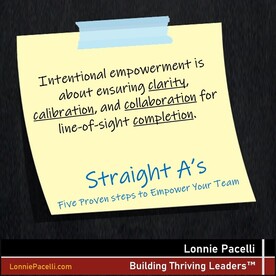
I love baseball. I love watching the strategies, the big plays, the colossal errors (anyone remember poor Bill Buckner?) and the dramatic finishes. The Tampa Bay Rays, who in nine of their first ten years of existence finished dead last in their division (In 2004 they managed to beat out one team and finished fourth in their division), surprised everyone in 2008 by beating out such teams as the Boston Red Sox and the New York Yankees and made it to the World Series only to lose to the Philadelphia Phillies. Even though they lost the World Series, they were heroes in the eyes of millions who rooted for them and their storybook season.
One strategy that I particularly enjoy is the use of specialty players, of which the most prevalent is the "closer". The closer is a pitcher who is brought in for just a very short period of the game (typically the last inning of a game) to shut down opponent hitters and either secure a win for their team or allow a team who is behind to catch up in their last at-bat.
0 Comments
 It was one of my earlier projects as a project manager. I spent a lot of time planning the work out, calculating the critical path through the project, and getting everything ticked and tied prior to kickoff. The kickoff meeting went well with the exec sponsors. I set high expectations on my ability to deliver. The team was largely silent during the kickoff meeting, letting me do my thing. The first few weeks in, I reported that we were on schedule and budget, and within scope; we were on our way to a stellar delivery. At week four, a few of the tasks started slipping. “No problem, we can make it up,” I thought to myself. I reported that we were still on schedule. The next few weeks saw more slippage, and some team members began expressing concern about our ability to meet dates. I reported that things were still okay, and we were working through a couple of minor issues. After a couple more weeks, the concerns continued to crescendo, and one of the exec sponsors caught wind that there might be some problems on the project. He set up a meeting with me and some of my leads to deep-dive on what was going on. It was one of my most uncomfortable meetings at that point in my young career. I was the last one in the room to acknowledge there were problems. Read more at ProjectManagement.com.  I remember as a kid being entertained by plate spinners. The performer would spin bowls, plates or other flat objects on poles and keep them all spinning without falling off. I watched each plate spinner run from pole to pole, jiggling the pole to keep a plate from wobbling and falling off. The spinner had to prioritize those plates most likely to fall off the pole first, get them spinning again, them move on to the next teetering plate. Sometimes, the spinner was able to keep everything spinning; sometimes, a plate crashed to the ground, to the “oohs” and “aahs” of the crowd. Welcome to the world of managing multiple projects. As a young PM, I was managing three large engagements. I was bound and determined to show everyone I could do it. Long story short, I ended up tanking not one, not two, but all three projects. All three plates came crashing down. It was one of the most painful experiences I ever went through as a PM…one that I was determined not to repeat. I’ve been asked how many projects is reasonable for a PM to manage. Honestly, it depends on several key factors: Read more at ProjectManagement.com.  Mr. Creosote. Some of you may know the name. He was a character in Monty Python’s The Meaning of Life. Portrayed by Terry Jones, Mr. Creosote ate and drank massive quantities in a French restaurant. At the end of the meal, the server (played by John Cleese) offered Mr. Creosote a wafer-thin mint. After some objection, Mr. Creosote agreed to eat the mint, which caused an unfortunate reaction. Those of you who know the skit (or just searched for it) know my description cleaned things up quite a bit. While most could have easily eaten the small mint without any adverse consequence, for Mr. Creosote it was just too much to handle. He had hit a saturation point. This analogy applies directly to how much newness an organization can absorb before things start breaking. It’s the organization’s saturation point. Read more at ProjectManagement.com.  Recently, my wife and I were watching a college football game between two highly ranked teams. Deep into the third quarter, only a few points separated the two teams. The quarterback took the snap, scrambled while looking for someone to pass to, and let the ball fly. The ball was intercepted by a linebacker and, with three teammates as an escort to block opposing players, made his way to the end zone. The linebacker, thinking he was in the end zone, dropped the ball to celebrate with his teammates. Upon replay, the linebacker dropped the ball at the 1-yard line—and a quick-thinking opposing team player pounced on the ball while the linebacker and his teammates reveled in what they thought was a touchdown. Then the referee signaled “fumble with recovery by the defense” at the 1-yard line. The look on the linebacker’s face was one of “Oh, $*&$!” after he learned his all-but-guaranteed touchdown would now go down as a fumble with a recovery by the opposing team. Even worse was the fact that two of the linebacker’s teammates ran by the ball bouncing at the 1-yard line, more focused on the celebration than the ball. Fortunately for the linebacker, his team still went on to win the game. Afterward, the head coach was being interviewed. He stressed the importance of doing the little things right—including not dropping the ball before hitting the end zone. I can only imagine the conversations that the linebacker had with his coaches after the game. Read more at ProjectManagement.com.
 No show, third in a row. Anna, a PM, holds a weekly Zoom status meeting with Jade, the project sponsor. At the beginning of the project, Jade was a great partner and a strong supporter for Anna. As the project went on, Jade’s involvement became more and more sporadic. Sometimes she responded to emails, other times she didn’t. Anna sent Jade status reports and rarely got responses. The rest of the project team noticed Jade’s declining involvement and was growing concerned. “Does Jade still care?” Anna would hear from the team. Anna, a professional, did her best to keep the team motivated and engaged, but she too was wondering what to make of Jade’s disappearing act. *** *** *** I’ve been a sponsor, worked as a PM with sponsors, and advised both sponsors and PMs. By and large, sponsors and PMs are both trying to do the right thing—understand a problem, figure out how to solve it, and work together to implement a solution that addresses the problem. Even with the best of intentions of all concerned, the sponsor/PM dance can feel more like one is doing a jitterbug and the other a waltz. Often, it’s the PM who sees the difference and has trouble getting the sponsor to take the same steps. This is not only frustrating, but can materially impact—if not completely tank—the project. Before we get too far down the road on this topic, I’d like to lock down a number of assumptions regarding the sponsor: Read more at ProjectManagement.com 
In an earlier leadership role I had been striving to create focus and accountability within each of our major work areas. The team responded beautifully with doing their best to adjust to roles, to stay focused on their areas, and to minimize confusion by stepping across boundaries. They did exactly as I asked.
We were in a team meeting and I could see that there was erupting confusion around contacting customers in an effort to close some sales. There was a lot of respect for my sales & marketing manager in not stepping in on her turf when it came to customers. Where the problem arose, though, was in the fact that the team was confused as to who was supposed to be following up on some key sales activity that had begun prior to our organizational re-alignment. 
So maybe you think you're all that and a bag of chips and that you can get more things done than most people in your organization. As managers, though, it's not just about you getting things done on your own; it's about you getting your team to be as effective (or more) as you.
I deliberately use the term effective versus efficient. For me, there is a very clear distinction which I believe is crucial in driving results.  So let’s say you went through the 12 Questions to Ask Yourself Before Becoming an Independent Consultant—and you still want to take the plunge. This article will give you the must-do items to complete before opening your doors. It’s common to be excited about getting your consultancy going and landing that first gig—passion is great! But you absolutely need to get a few things in order first. I can’t stress this enough: If you skip over considering the 10 steps below, you are setting yourself up for potentially big problems later. This is a “measure twice, cut once” thing. (I think you get my point by now…) My experience is setting up a U.S. company in the state of Washington. You should use the advisors and other suggestions that are right for your consultancy’s location. Read more at ProjectManagement.com |
Topics
All
Reprints
Contact Lonnie about article reprints. Please specify article you wish to reprint. Backlist
See Lonnie's Amazon Author Page Archives
July 2024
|
Lonnie Pacelli - Building Thriving Leaders™
Insightful | Creative | Direct Advice to Help Leaders Help Themselves
Keynote Speaker | Board Director | Autism Advocate | Author | Project Management Expert | Microsoft/Accenture Veteran
See his books on Amazon
Insightful | Creative | Direct Advice to Help Leaders Help Themselves
Keynote Speaker | Board Director | Autism Advocate | Author | Project Management Expert | Microsoft/Accenture Veteran
See his books on Amazon
Services |
About
|
© COPYRIGHT 2019. ALL RIGHTS RESERVED.
We are a participant in the Amazon Services LLC Associates Program, an affiliate advertising program designed to provide a means for us to earn fees by linking to Amazon.com and affiliated sites.
|

 RSS Feed
RSS Feed